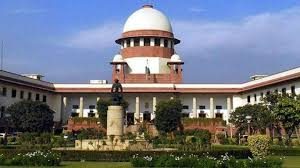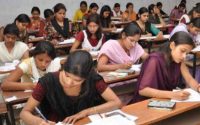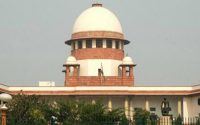$100 Website Offer
Get your personal website + domain for just $100.
Limited Time Offer!
Claim Your Website NowTop Court Verdict Shortly On Reservation In Promotion For Government Jobs

Source-ndtv.com
The Supreme Court will pronounce today its verdict on centre’s plea seeking reconsideration of 2006 judgment laying down the criteria for reservation in promotion for SC/ST employees which the government has contended is coming in the way of filling lakhs of vacancies in different departments.
The top court by its 2006 judgment, also known as Nagaraj case, had said: “…state will have to show in each case the existence of compelling reasons, namely backwardness, inadequacy of representation and overall administrative efficiency, before making provision for reservation in promotion.”
The October 19, 2006 judgment was pronounced by a five-judge constitution bench comprising Justice Y.K. Sabharwal, K.G. Balakrishnan, S.H. Kapadia, C.K. Thakker and P.K Balasubramanyan.
Making it clear that the concept of creamy layer within the SC/ST is not the issue, the bench of Chief Justice Dipak Misra, Justice Kurian Joseph, Justice Rohinton Fali Nariman, Justice Sanjay Kishan Kaul and Justice Indu Malhotra had earlier said: “There may be individuals (within SC/ST) who might have overcome the stigma, but the community continues to face the stigma.”
The judgment was reserved on August 30.
The court had said this as litigants opposed to reservation in promotion had contended that scheduled castes (SC) and scheduled tribes (ST) have come to occupy the office of the President, Central Ministers, Chief Justice of India and Chief Ministers, and this section is no more socially disabled as they were in the past.
Seeking reconsideration of 2006 judgment laying down the criteria for reservation in promotion, the centre had contended that even though some people belonging to scheduled castes and scheduled tribes have climbed up a few steps in the economic ladder yet the stigma of caste and backwardness continues to stick to them and they suffer from social exclusion.
Countering the argument that a section of SC/ST have climbed the ladder of economic prosperity and hence they should not get reservation in promotion, the court was told that the “…the stigma of caste and backwardness is still attached to them and rest of the Hindus treat them inferior”.
Telling the court that the economic well-being of a section of SC/ST does not obliterate their social exclusion, Attorney General K.K. Venugopal had recalled the media reports of upper castes people not permitting the bridegroom to ride a mare while going to bride’s home during the marriage.
The centre had told the court that notwithstanding the economic rise of a section of SC/ST, they are still shunned by the upper castes and when it come to matrimonial alliances, they have to marry within their own caste.



